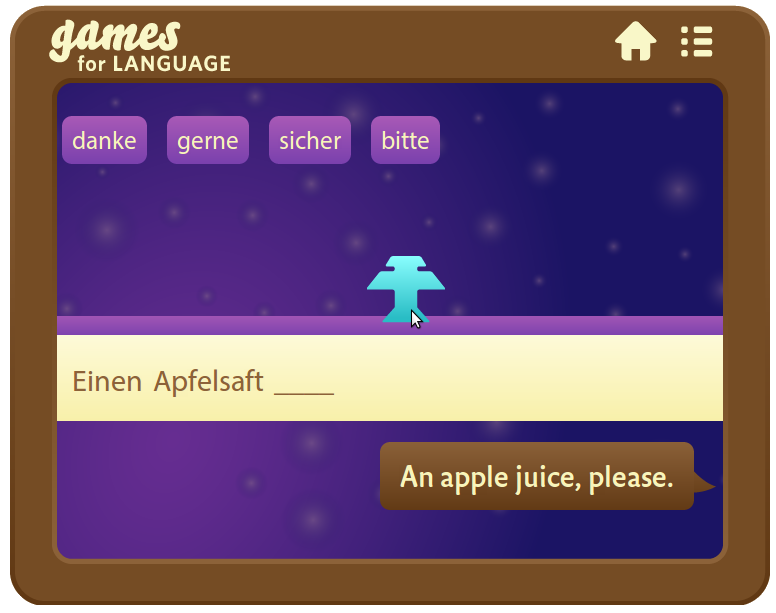My 12 Best Daily Habits for Learning Foreign Languages
 What are the best daily habits for learning foreign languages? Everyone has some favorites, but adding a couple of new ones is always a good idea. It makes learning interesting.
What are the best daily habits for learning foreign languages? Everyone has some favorites, but adding a couple of new ones is always a good idea. It makes learning interesting.
There's no shortage of advice on the web about learning foreign languages. If you can just convert some of that advice into a few habits - they'd be sure to make a difference on your path to fluency.
To learn a language, you can choose from many online and offline language learning options available today. Select the one that engages you the most and has you go back again and again to learn and practice.
But ultimately, how effective any of the programs will be, may depend on how well you can incorporate some language learning habits into your daily life.
Here are my 12 best daily habits to maintain and improve my languages.
1. Have a Small Notebook Handy at All Times
 I do a lot of my language learning using online programs and recources. Still, I always keep a small notebook with me, which I use in multiple ways. It's a place where I keep track of my learning. I also write down words and phrases I want review later.
I do a lot of my language learning using online programs and recources. Still, I always keep a small notebook with me, which I use in multiple ways. It's a place where I keep track of my learning. I also write down words and phrases I want review later.
When I'm in the mood, I write a short journal entry in my target language. If you do some writing, and have a mind to get corrections, you could copy and post what you've written on Lang-8, or italki. It's free. In return, your corrections of what others have written is much appreciated.
When I come across new resources, books, sites, songs, etc. I write them in my notebook.
Yes, you can do most of this on your phone. Still, I find that writing by hand engages my mind in a different way from typing or tapping. The biggest benefit is that it strengthens my memory.
2. Try to Formulate as Much as You Can in Your Target Language
During times you're free to do so, try to think and talk to yourself in your foreign language. For example, when I set the breakfast table, I say the names of any items in the room. Anything I want to look up, I'll write down in my notebook.
Likewise, you can talk to yourself about things that you're doing, going to do, or did in the past - all in your target language.
As you go about your day, you can spontaneously translate common phrases you hear or think, such as: "Let's go" "That's fun" "I'm late" "What's that?" "What's up?" "I don't know" "I got a text" etc.
The more you think in your new language, the easier it will become. With time, you'll be doing it automatically.
3. Say Your Target Language Out Loud Whenever You Can
 This is an important habit to get into. No matter how much you (silently) read and listen to your foreign language, you have to produce the sounds to speak with any fluency.
This is an important habit to get into. No matter how much you (silently) read and listen to your foreign language, you have to produce the sounds to speak with any fluency.
Real conversations with others are, of course, the best way to practice. But if you push yourself to say as much as possible aloud, your target language speaking skills will benefit enormously.
There are many ways to do this:
• Read a few sentences aloud from your target language book.
• Or, as you practice with an online program, repeat and say words, phrases, and sentences aloud.
• Reading newspaper headlines? Read them aloud.
• Listening to a song? Sing along.
4. Listen to Songs in Your Target Language
Popular songs in your target language can be a fun and effective way to learn and practice. Music opens your ears and connects you straight to the sound. There's no need to worry about grammar or pronunciation, you just go with the flow.
Even as you listen and imitate the melody and lyrics, you are practicing the sounds, rhythm, and various idiomatic phrases in the language you are learning.
You can find many songs with translations on YouTube. And even better, Language Zen, for example, uses songs for teaching Spanish very effectively, by breaking the lyrics up into chunks, and then building up the song again, all the while integrating the music. I'm looking for programs that do the same for other languages.
5. Set Your Phone to Get Notifications or Headlines From News Sites
 If possible, set any news alerts or headlines you get in your native language into the language you're learning.
If possible, set any news alerts or headlines you get in your native language into the language you're learning.
Notifications are another option. Now, with the European Soccer Championship taking place in France, I've signed up to get updates in French from the newspaper Le Monde. (Depending on your interest, you can also subscribe to different Le Monde Newsletters.)
I also stay abreast of what's happening in Switzerland with German newsflashes from "20 Minuten."
Daily emails with news headlines in your target language are another option.
I get them from Huffington Post with news from Spain, Québec and France, Italy, and Germany - each in the local language. Of course, you can do this with other newspapers and in other languages too.
6. At Breakfast or Dinner Do a Quick Practice with your Partner or Children
Involving a partner, a friend, or even your children in some fun language practice is a huge benefit.
My husband and I go over a daily list with Spanish words, at breakfast or dinner, alternating who gets asked. For that, we use my little notebook with words we want to learn, and go over hard words that I've starred in pencil. Needless to say, we laugh a lot doing that as we practice sounds, find associations, think of translations into other languages, etc.
When our sons were still living at home, we spent a few minutes at each meal telling anecdotes in German. They've often told us how much they appreciate the effort we put into helping them become bilingual. They are now busy adults, who still find time to do the same with their young children.
Children are so open to learning! A friend of ours plays a little "I see, I see what you don't see" language game in French with her kids during meals. Even her two-year-old chimes in by imitating some of the words.
7. Play Language Games
 There are many language game apps you can buy for a few dollars, such as Mindsnacks, Drops, Worddive, etc. You can also play the free online Gamesforlanguage Quick Games, or Quizlet games, or games on Lingohut. Many of these games you can play at various times during the day, when you have a few minutes.
There are many language game apps you can buy for a few dollars, such as Mindsnacks, Drops, Worddive, etc. You can also play the free online Gamesforlanguage Quick Games, or Quizlet games, or games on Lingohut. Many of these games you can play at various times during the day, when you have a few minutes.
Interactive games have features that can help you learn vocabulary and grammar points intuitively and painlessly. Replaying the games helps you to memorize. Games are also a great way to learn pronunciation and improve your listening comprehension.
In addition to games for individual play, there are games you can play with your friends. And, it doesn't always have to be apps or online games. For example, you can play various Kloo Games with your children and friends and improve everyone's French, Italian, Spanish (and English).
When you're having fun through a game, you're less likely to be anxious about grammar and pronunciation.
8. Record Your Voice and Play It Back
 Listening to podcasts and watching TV shows is important for your pronunciation. But you become much more aware of your own speech when you record yourself.
Listening to podcasts and watching TV shows is important for your pronunciation. But you become much more aware of your own speech when you record yourself.
Use your smartphone to record yourself and just chat away in your target language. Then, play your recording back. You’ll hear your own pronunciation, and become aware of what sounds you should practice. Recording your own voice and playing it back is a powerful and deliberate step towards improvement.
9. Set up Some Time With a Tutor, an Exchange Partner, a Native-Speaker Friend, etc.
Talking with native speakers is one of the most important ways to improve your fluency. Make it a habit to seek out various people to practice with.
Ways to do that is to schedule sessions with a tutor, meet friends over a cup of coffee, attend language meetups in your town, go to a local shop or market where you can use your target language, join a cultural club, etc.
The benefit of doing so is that you'll start thinking about the upcoming session. That often involves getting yourself ready, if only by practicing a few phrases and sentences in your mind.
10. When You're Cooking, Running, or Exercising, Listen to a Podcast or an online Radio Program
 This gives you a choice to listen to whatever interests you. If you listen to a subject that you know something about, the context will help you guess unknown words.
This gives you a choice to listen to whatever interests you. If you listen to a subject that you know something about, the context will help you guess unknown words.
Even if you're not totally focused on listening because you're also doing something else, your brain takes in more than you think: sounds, intonation, words, phrases, the rhythm of sentences, etc.
The important thing is that listening this way puts you into the environment of the language, it immerses you.
For example, for German, I use the Podcasts on the online news magazine Der Spiegel. For Dutch, I listen to Podcasts on the online newspaper NRC.
11. Watch Videos, TV Shows, and Films in your Target Language
If you like watching films, TV shows, or YouTube videos, then make a habit of watching some of them in the language you're learning.
At first, quickly spoken language may sound like gibberish. I had that experience when we lived in Rome for a few months. But after a while, I started hearing individual words and getting more and more of the meaning. The flow of the language seemed to slow down.
Foreign films are a great way to practice listening comprehension and to learn about culture. Setting the subtitles option to the same foreign language is often a big help. I prefer this to subtitles in English.
12. Go over a Few Words and Phrases Just Before You Go to Sleep
As we reported in a recent post – Foreign Language Learning While You Sleep? - Swiss researchers have found that hearing such words and phrases WHILE YOU SLEEP, could improve your memory.
Unfortunately, there is no practical way yet to replicate such test results at home. However, other research seems to confirm that reviewing foreign words and phrases BEFORE you go to sleep will also enhance your memory of them.
Apparently, your brain keeps working on what you just reviewed while you sleep and starts moving the words and phrases into your longer-term memory.
Any of these 12 habits can add some routine to your language learning. Try some of them and tell us what you think. You can always reach us via Contact
Bio: Ulrike Rettig is the co-founder of Gamesforlanguage.com. She is a lifelong language learner, growing up in Austria, the Netherlands, and Canada and speaks German, English, Dutch, and French fluently. She intends to become as fluent in Italian, Spanish and Swedish. You can follow her on Facebook, Twitter and Instagram.
Disclosure: Certain links above are to a partner's program with revenue-sharing, should you decide to purchase or subscribe.
